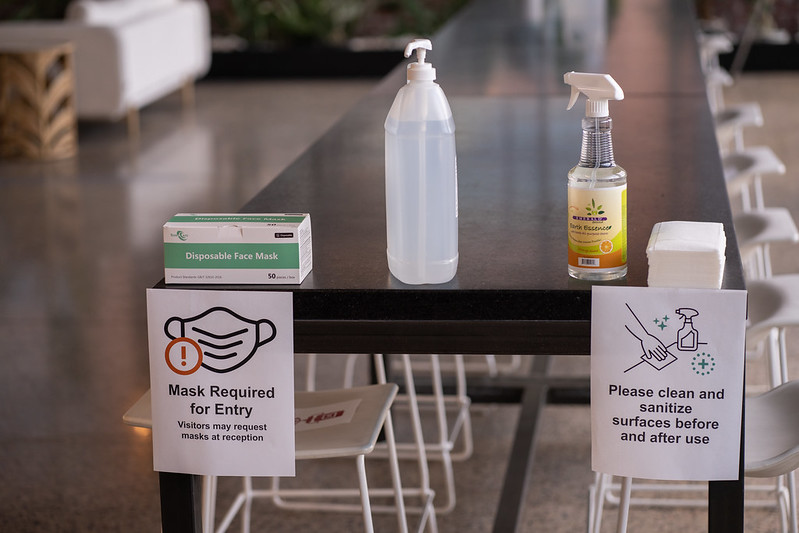COVID Contact Tracing at DVC: Here’s How It Works
Photo by Chad Davis via Flickr. CC BY 2.0.
The resuming of in-person classes and services this semester has resulted in a variety of changes at Diablo Valley College – one being the school’s introduction of a rigorous contact tracing program designed to help contain the spread of COVID-19.
To ensure greater safety as classrooms refilled in January, DVC also instituted a campus-wide cleaning regimen to counter potential and known exposures to the virus.
Since the start of the year, the Contra Costa Community College District (4CD) has provided regular notifications, through InSite, to students and employees about COVID-19 cases reported on campus. The process took extensive planning as well as coordination with the local government.
“We work closely with our county health officials,” said Todd Hampton, DVC’s vice president of business and administrative services. “They really set most of the policy.”
Process and protocol
Brandy Howard, the school’s communications and marketing director, is responsible for alerting the district of any cases of COVID-19 reported on campus.
Once a positive case is reported, Hampton said an internal email goes out to the DVC chief of police, facilities vice chancellor, risk management officials, and other campus vice presidents.
After that, administrators contact the college supervisor and director of custodial work to make sure any potentially infected areas have been sanitized.
“Since we found early on there is a lag time between reported cases and others using the spaces, we implemented enhanced cleaning protocols campus-wide,” said Hampton.
For its part, the custodial team updated its cleaning schedule to prioritize disinfecting high-traffic areas such as the cafeteria, library, athletic facilities and other spaces regularly visited by students.
All classrooms and labs are disinfected every Monday and Thursday, Hampton said. The school has also upgraded its air filtration system in classrooms and other indoor common spaces to promote better airflow.
In terms of campus protocol, when a student tests positive for coronavirus, the school immediately informs the professor or professors with whom the student last attended in-person classes, and provides the dates and location of their attendance on campus.
Likewise, professors who test positive are required to report their own cases to their supervisors, providing the same types of detailed information about where and when they have been on campus, said Hampton.
Since January, professors had been reporting every instance of their on-campus attendance through InSite. But due to relaxed CDC requirements, this week the school discontinued the requirement.
For non-academic employees at DVC as well, the pandemic has upended workplace policy. According to Hampton, if one campus cafeteria worker becomes ill with the virus, up to a fifth of cafeteria employees could be infected and forced to quarantine.
Hampton said he is less concerned about COVID cases on campus of late, due to high vaccination rates and strict masking requirements.
Still, despite a “green pass” system designed to monitor people’s status on campus, the school has relied, to a large degree, on individuals reporting honestly about their health.
“We have to trust students and staff to not show up if they are sick,” he said.





































































